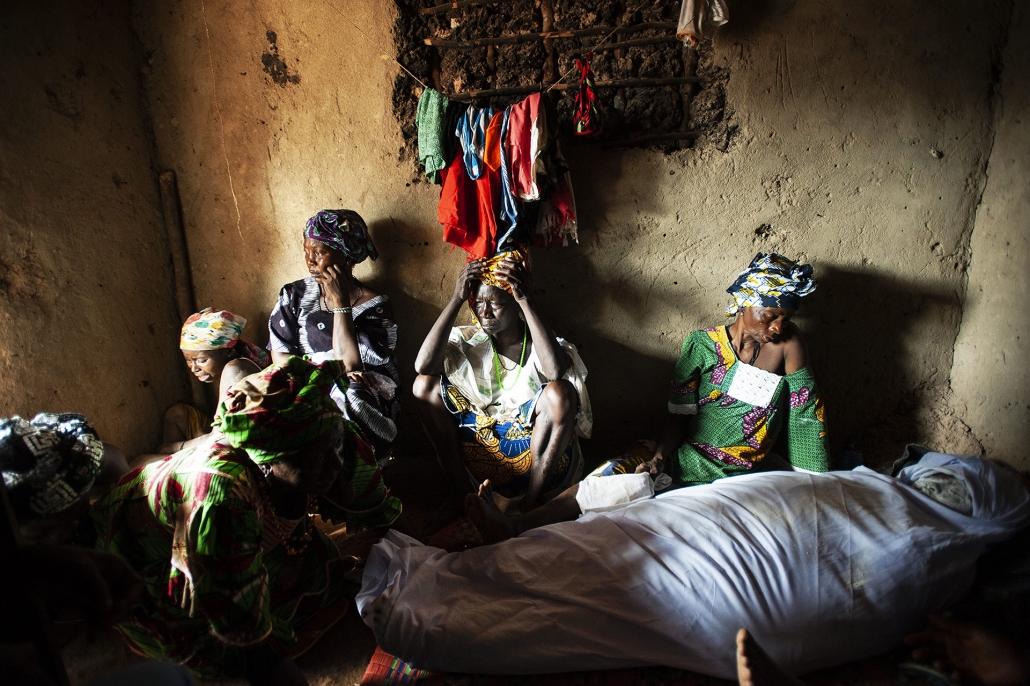MATERNAL MORTALITY
This post is also available in:
 French
French
Mamma Sessay was lying on the delivery table a few minutes after giving birth to her second twin. A puddle of blood was forming on the tiles below. ”I’m going to die,” she repeated, her eyes filled with panic while blood was rushing from her body. At the Magburaka Government hospital, there was only one doctor available for the entire province and he was already operating. The midwives straightened Mamma Sessay, they wiped the floor and then took her blood pressure just before she died of postpartum haemorrhage in less than an hour.
Mamma Sessay died in 2010. That year, an average of five women a day died of maternal causes in Sierra Leone. And Sierra Leone wasn’t an isolated case. In other developing countries such as Afghanistan, Somalia, Chad, India and Haiti, more than 500,000 women died each year, mainly because of restricted access to medical facilities and perinatal care. This is sometimes linked to the lack of transportation or poor road conditions to access professional health services, but often the latter don’t even have basic equipment and medicines to diagnose and treat frequent complications such as preeclampsia, postpartum haemorrhage and sepsis. In addition, many of these countries have a high early pregnancy rate, and complications are numerous because the young girls’ bodies aren’t sufficiently developed to endure childbirth. Whatever the causes, whatever the country, between 60 and 70% of maternal deaths could have been avoided.
I saw Mamma Sessay die in front of my lens, and I wasn’t able to believe that something as natural as childbirth would be able to kill hundreds of thousands of women every year. I then vowed to spend my time on maternal mortality around the world, and over the last ten years I produced this documentary in Sierra Leone, Afghanistan, India, Haiti, the Philippines, United States and Somaliland.
Today, thanks to the raised awareness and efforts of the international community, maternal mortality has dropped by more than 40% since 1990 according to the World Health Organization. A trend observed in all developed countries, except of the United States and Serbia that, tragically, saw their maternal deaths rise. Many people today are unaware that pregnancy and childbirth, two natural life events, can still be fatal for many women. Access to adequate health services and perinatal care is a fundamental right for all women who will give birth.
Lynsey Addario
From 31/08/2019 to 15/09/2019
VISA POUR L'IMAGE - Couvent des Minimes
24, rue Rabelais
66000 PERPIGNAN
France
Phone : 01 42 33 93 18
visapourlimage@2e-bureau.com
www.visapourlimage.com



